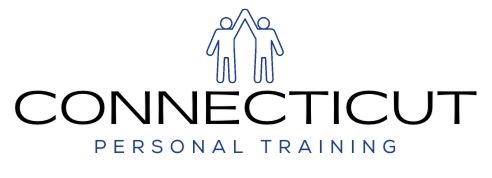One of the most popular questions in the fitness trainer community is whether one needs a degree to be a trainer. Of course, many fitness professionals have an academic certification in exercise science or in some similar field of study, but this does not mean that it is obligatory in this field. In this article, let’s explore the question, “Is a degree necessary for a career as a fitness trainer?”
Educational Pathways
Knowledge of fitness training may be attained through several educational routes, and the most suitable learning approach is usually hinged on the learner’s lifestyle and program objectives. Others will prefer to study towards a degree in the subject area of interest, while still others prefer certification and online learning.
Earning a Degree
Pursuing an academic degree in exercise science, kinesiology, or any related courses provides program-aspirant necessary tools, knowledge, and expertise. These programs may include human anatomy, physiology, nutrition, and principles of exercise, employing an extensive understanding of the general functioning of the human body as well as functioning at its optimal potential.
Some advantages of pursuing a degree include:
- Comprehension with regard to specific scientific facts and phenomena
- Opportunity to update oneself with the latest research or resources available
- More opportunities for employment with better pay
The earning of a degree takes time and money to get the required accreditation. It also may not be necessary for those who have an interest in exercise. The other disadvantage is that most degree programs emphasize more theory than practice.
Certifications and Self-Learning
Certifications, for people who are not interested in attending a university, and self-learning make a practical alternative. Certifications are offered by organizations involved in fitness and are provided in different fields of exercise instruction, such as personal trainers, group exercise instructors, and trainers of specialized programs for particular populations.
Some advantages of certifications and self-learning include:
- Self-paced and more convenient as compared to online traditional classroom courses
- Less expensive compared to degree programs of study
- Practical experiences and skill development are effective approaches to training
The Value of Certifications
Certifications are necessary in the fitness industry because they demonstrate that the holder of the certificate, as a fitness trainer, has the minimum knowledge and skills. They show the prospective customers that the trainer is capable of developing safe and effective exercise programs.
In the United States, the National Commission for Certifying Agencies (NCCA) accredits several reputable certification organizations, such as:
- American College of Sports Medicine (ACSM)
- International Sport Science Association Certification
- American Council on Exercise (ACE)
- National Strength and Conditioning Association (NSCA)
These bodies provide corresponding courses relevant to different occupations in the sphere of fitness. Fitness trainers have to get a certification from a recognized agency so that people can trust them.
Practical Skills for Success
In addition to education and certification, fitness trainers also have other skills that will help them work in their field efficiently.

These skills include:
- Communication and interpersonal skills: Good customer skills are required to respect and gain a client’s trust in order to encourage him or her to do business. Potential fitness trainers should be able to listen carefully, offer the proper exercise plan, and encourage clients.
- Goal-setting and motivation: Fitness trainers should be able to guide their clients in setting reasonable goals and encourage clients to follow the fitness goals of their dreams. This means you must have an understanding of human psychology to be able to understand clients and come up with the best solutions to make them stay on board.
- Injury prevention and management: Personal fitness trainers need to have a lot of knowledge about exercises that cause or result in injuries and how to avoid or treat them, and where to direct their clients to get the correct help. This knowledge helps to prevent clients from being harmed and builds reliability in the trainer/client relationship.
- Adaptability: The fitness industry is developing fast, and learners should be flexible to make changes to their strategies. It is helpful to become familiar with the more recent literature, practices, and available techniques.
A degree is not essential at all for a successful career in the fitness field. The last cornerstones to becoming a trusted and effective fitness trainer are certification, self-education, and hands-on experience. In conclusion, the best roadmap towards being a successful fitness trainer is having the necessary amount of knowledge and practical skills, in order to be able to learn on the job and to adapt to any changes occurring in the fitness industry.



